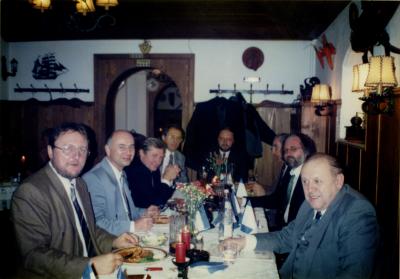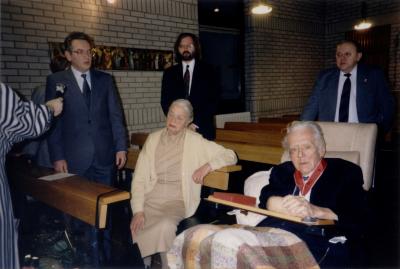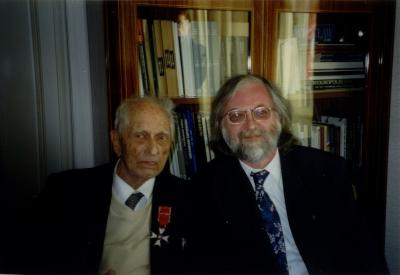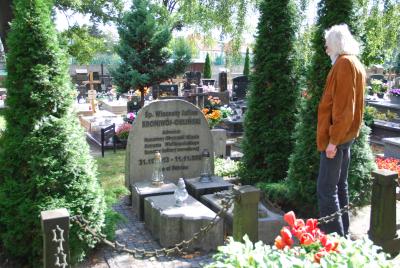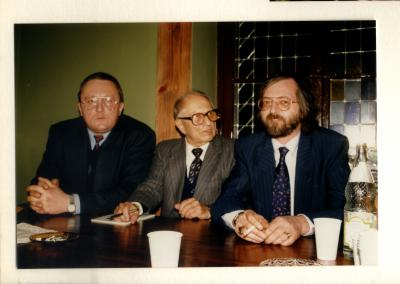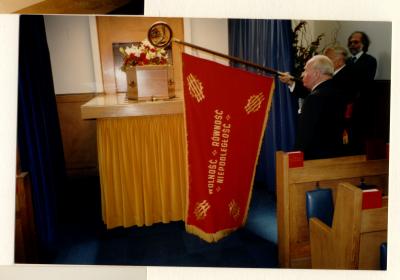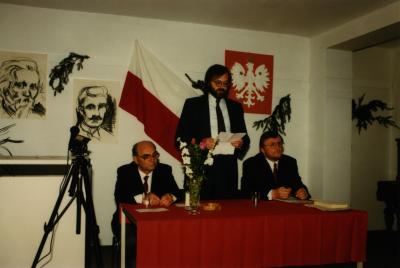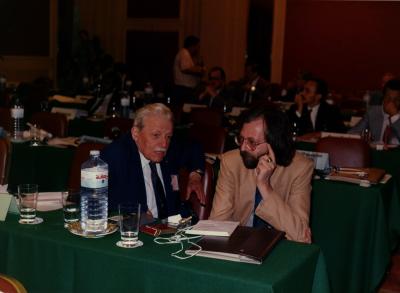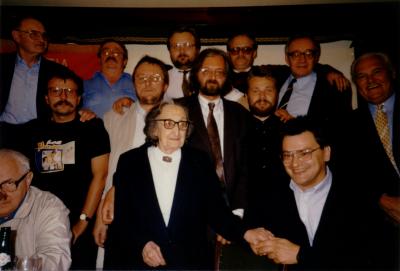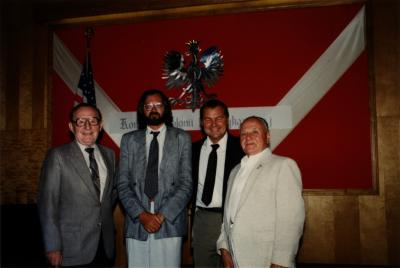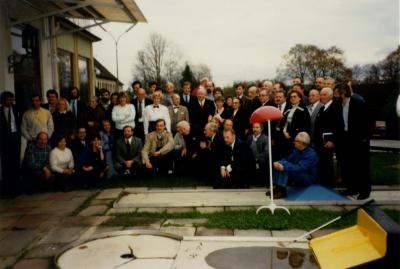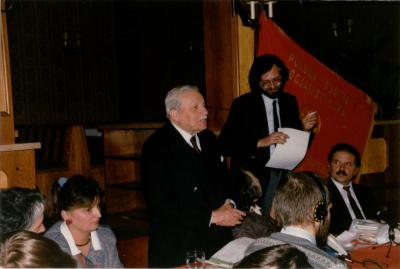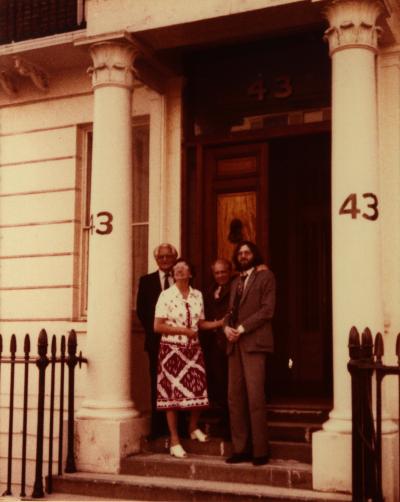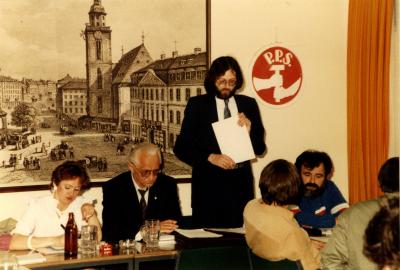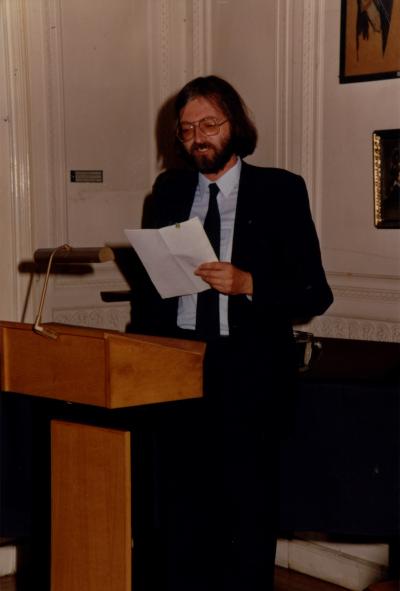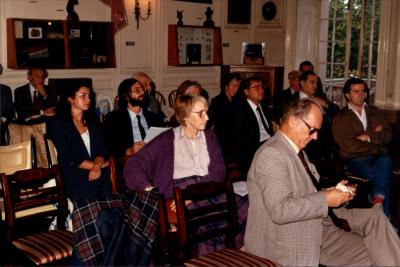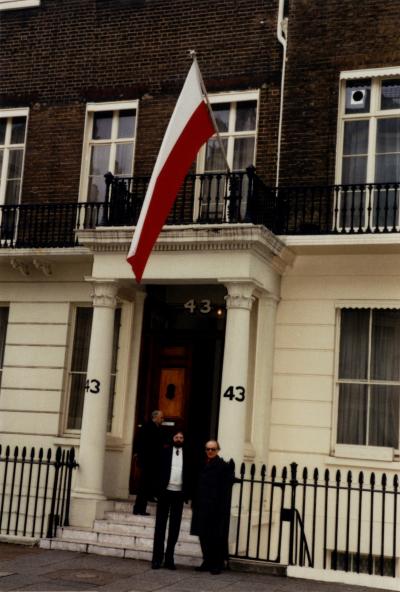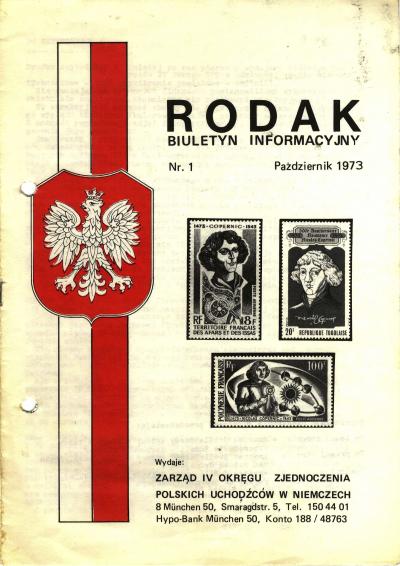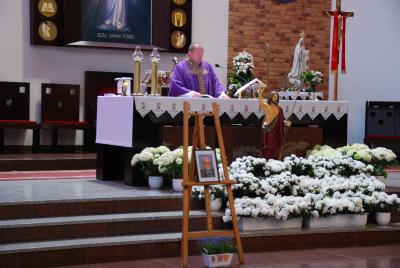Dedicated to Poland: Jacek Kowalski (1950–2019)

This decision prompted him to abandon his studies. He started work in a horticultural cooperative in Ostrów, but was sacked from his job due to the increasing repression. His precarious financial situation meant that he was forced to look for another job. Finally, he found employment in the state-owned layered laminate factory in Bernau near Berlin. However, soon afterwards, he was sacked from this job, too. It emerged during a factory inspection that he was being employed illegally, and he was expelled from the country. At the beginning of 1972, he again sought work in the GDR. This time, he was offered a job in the boiler house of the state-owned Elfe chocolate factory in Berlin-Weißensee. After a while, he was promoted to water replacement warder, and later to boiler warder. That same year, urged on by his parents, he began studying German language and literature at Adam Mickiewicz University in Poznań. Thanks to the support of Dr Hubert Orłowski, he qualified for an academic exchange and in 1974, he enrolled at Martin Luther University in Halle (Saale), where he met the woman who would become his wife. As a student, he became the representative of the delegation of Polish exchange students and was monitored by the Stasi. Their interest in him stemmed from a speech he gave to mark the 30th anniversary of the People’s Republic of Poland and the 25th anniversary of the founding the German Democratic Republic, in which he called into question the liberation of the city of Halle by the USSR. Following this speech, he was taken away for questioning by Stasi officers.
“Every member of the delegation gave a speech. I was also required to make a contribution. After reading an inscription on the wall, ‘We thank the Soviet Army for the liberation of Halle’, I knew that I had to correct several historical facts and explain what really happened. I said that Halle – as I had learned from my textbooks at school – had been liberated by the American Army and that it had then been given to the Soviets in exchange for their Berlin sector. At this point, my microphone was switched off. The next day, Mr. Schmeiel from the Ministry for State Security, who was in charge of foreign students, came to pick me up. Two men whom I didn’t know were waiting downstairs in the student hostel, who accompanied the two of us to an apartment. (...) They tried to convince me that I had been drunk while I was giving my speech. (...) When I refused to back down, one of the men asked me whether I liked the grass in the GDR. I answered no, since here, there were chemical factories such as Buna or Leuna, and that everything was yellow and brown... After I had finished speaking, one of the men told me in German to get the f**k out. (...) After that, I decided to quit my studies”.
He then returned to his alma mater. During the course of his studies, he became interested in German literature. While preparing for his Master’s thesis, he met the Austrian writer Peter Turrini. Since he was unable to continue his research in Austria with his supervisor, he decided to accept another scholarship and to return to Halle. Moving to the GDR wasn’t just a good opportunity to see his fiancée again, but also to prepare for possible flight from Poland. Thanks to his Master’s thesis and the fact that at that time, Turrini’s works were not available in Poland, he was gradually able to put this plan into action. As Kowalski explained in an interview with the author:
“I studied in Poznań until July 1976. Travelling to the West was just a pretext, since I was due to write my Master’s thesis on Austrian popular theatre. This subject was chosen specially for me and my colleagues by Dr. Włodzimierz Bialik, since the word ‘popular theatre’ made it easier to leave the country. (...) I was first granted a visa for the Benelux countries, and then a transit visa for Germany. It was thanks to an invitation to visit France from a French citizen, now my wife, that I was given a residence visa for one month and a transit visa for Germany”.










